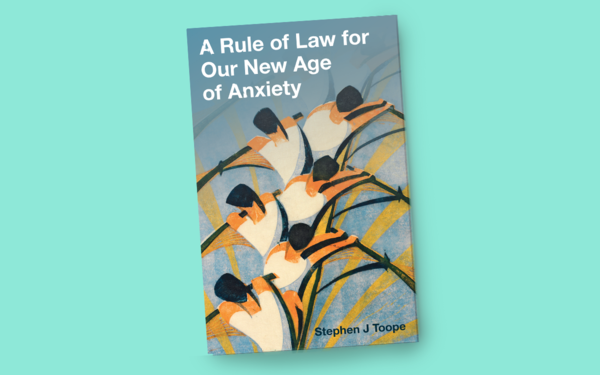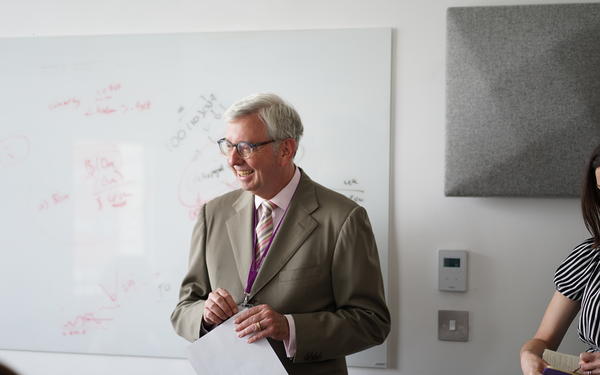News and Events
Revitalised rule of law can help "reshape anxiety into hope"
New book by legal scholar and former Vice-Chancellor of the University of Cambridge, Stephen J. Toope, argues for a new rule of law for our anxious world.

"We live in a profoundly complex and often disheartening time. People all around the globe feel lost and anxious. Multiple reports suggest that a mental health crisis is affecting young adults in all walks of life, and all around the world… If we are to address these anxieties by better understanding them and acting to lessen their underlying causes, we must restore belief in our collective ability to build healthier societies." - Stephen J. Toope
This extract is taken from a new book published today by Cambridge University Press (1 June 2023) - 'A rule of law for our new age of anxiety’, written by former Vice-Chancellor of the University of Cambridge, Stephen J. Toope – which argues with passion that a renewed faith in the rule of law can address troubling developments in the uncertain times we live in.

Professor Toope is President of the Canadian Institute for Advanced Research and former Dean of Law at McGill University. He also served as Chair of the United Nations Working Group on Enforced and Involuntary Disappearances.
Written mostly during the Covid-19 lockdowns in the UK in 2020 and 2021, the book highlights four main sources of anxiety of our age that Toope believes underlie many others: populist nationalism; the economic, social and cultural complexity of globalism; profound technological change; and climate change.
Drawing on literature from law, philosophy, political theory, international relations and sociology, Toope links together insights from across these disciplines into a coherent expression of what he describes as a “modest rule of law”. The modest, yet powerful, version of the rule of law advocated here is one that draws on a wellspring of practical wisdom – prudence gleaned from pragmatic experience. It chastens power, while not disconnecting law from other sources of social action and human agency.
What is the rule of law?
In a recent blog post, Toope writes: "the rule of law… does not represent a universal understanding of the 'good life'. Instead, [it's] primarily procedural in content. It encompasses criteria that ensure that social norms have actually been transformed into law, requiring for example that law is forward guiding, not applied retroactively, that law is made openly and not through secret dictate, and that law is understandable by people to whom it is directed.
Most importantly, the rule of law requires that law is applied to all people in a society (or at least to citizens) in an equal manner, through institutions like courts or administrative systems that are themselves subject to due process. No one is 'above the law'. This is crucial because we can only expect people in a society to show fidelity to the law, pursuing its social purposes, if they can also expect those in public life to do the same. Law is, in this sense, self-enforcing but only when people view it as legitimate."
In a review of the book, David Dyzenhaus, Professor of Law and Philosophy at the University of Toronto, says: “In our deeply troubled world, Stephen J. Toope has performed the astonishing feat of providing an optimistic yet deeply pragmatic account of how the rule of law can, properly understood, help us to navigate the many perils that lie ahead.”





